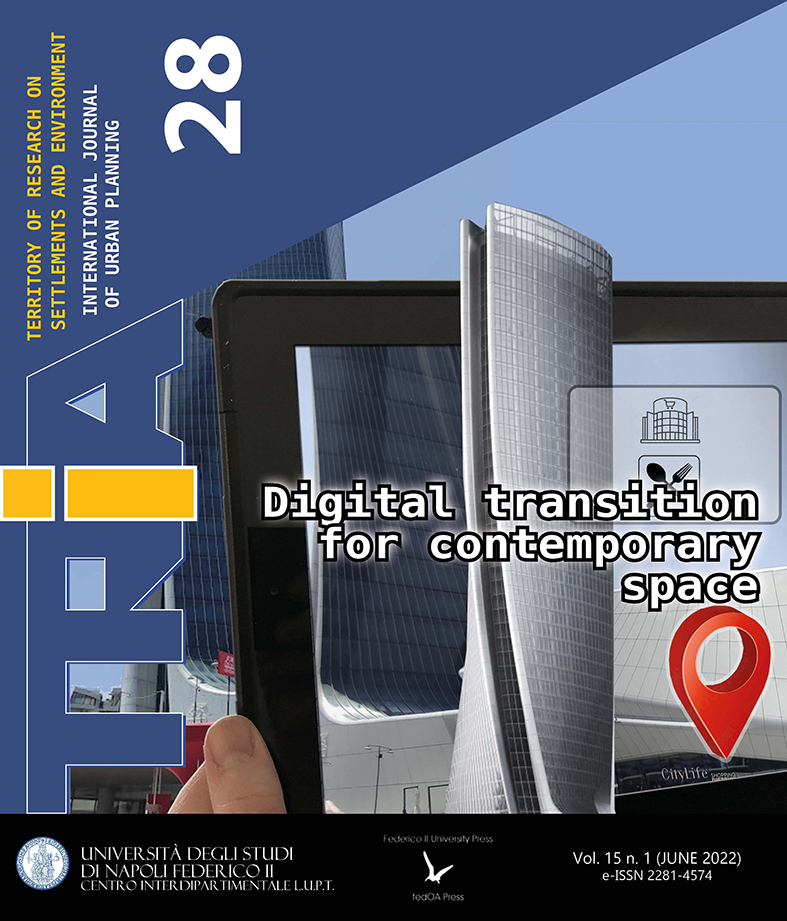No. 28 (2022): Digital transition for contemporary space

Today, the contemporary society is going through a very uncertain and complex period: there is an evident need to evolve for overcoming the already stratified challenges of environmental sustainability but also the most recent developments in the pandemic criticalities that inevitably affect the way of living the city. The concept of "transition" thus becomes an essential element to define urban recovery strategies in the short and long term: if on the one hand the ecological transition is fundamental to counterbalance the effects of climate change and to improve the quality of the city space, in the other hand the digital transition becomes a highly innovative aspect to be investigated in order to guarantee an equal fruition of the opportunities that urban and architectural space offers to its users. Digital solutions aim to consolidate the importance that the community must have within the design process by promoting reliable technologies and inclusive approaches that will help change the way we perceive urban reality. The digital transition therefore has the purpose of supporting the cultural, functional and recreational relaunch of the city and the contemporary space, overcoming the limits imposed by traditional design; at the same time, it aims to pursue sustainable approaches that amplify participation, promote ecological design ideas and make the choices and behaviours of technicians and users responsible.

